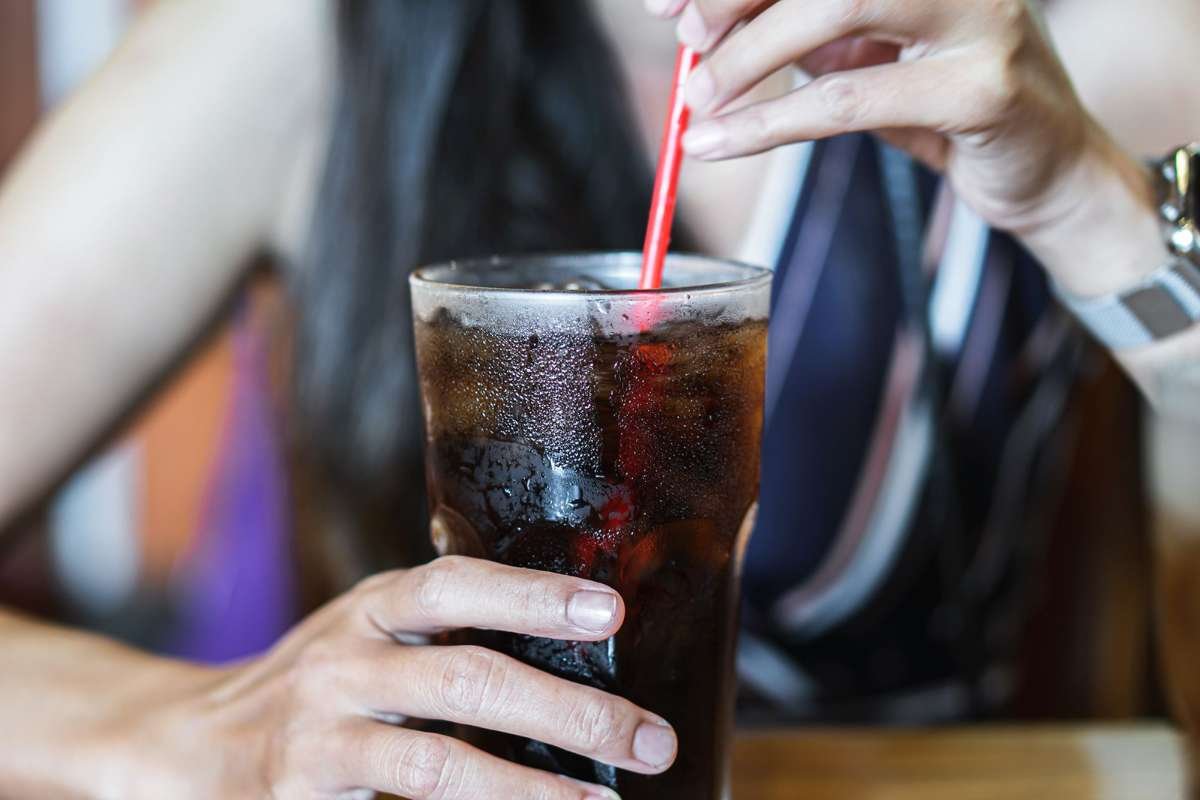Key Points:
- Drinking one soda daily raises liver disease risk by up to 60%.
- Diet sodas are even riskier than regular ones.
- Replacing soda with water can cut the risk by up to 15%.
Drinking even one can of fizzy drink per day, whether regular or diet, may significantly increase the risk of developing serious soda liver damage, according to new research from China.
Researchers at the First Affiliated Hospital of Soochow University in Suzhou found that consuming just 250 milliliters of soft drinks daily raised the likelihood of developing metabolic dysfunction-associated steatotic liver disease (MASLD) by up to 60 percent. The findings, based on data from more than 123,000 adults in the United Kingdom, were presented ahead of the United European Gastroenterology annual congress in Berlin on Oct. 7.
MASLD, formerly known as nonalcoholic fatty liver disease, occurs when fat accumulates in the liver unrelated to alcohol use. The condition has become a growing global health concern, with experts warning it is increasingly common among people who are overweight or have diabetes.
Diet drinks pose a higher risk
The study found that people who regularly drank sugar-sweetened beverages, such as Coca-Cola, had a 50 percent greater risk of developing soda liver damage. Those who consumed low- or non-sugar drinks, including Diet Coke or Sprite Zero Sugar, faced an even higher risk—up to 60 percent.
“Sugar-sweetened beverages have long been under scrutiny, while their ‘diet’ alternatives are often seen as the healthier choice,” said Lihe Liu, a gastroenterology researcher who led the study. “Our study shows that even modest intake levels, such as a single can per day, are linked to increased liver disease risk. These findings challenge the perception that these drinks are harmless.”
Researchers said that both types of drinks could harm liver health in different ways. Sugary beverages can cause spikes in blood glucose and insulin, promote weight gain, and raise uric acid levels, which contribute to fat buildup in the liver. Artificially sweetened drinks, meanwhile, may disrupt gut bacteria, increase sweet cravings, and affect insulin production.
Water linked to lower disease rates
The 10-year study followed participants who had no prior liver disease. During that period, 1,178 participants developed MASLD, and 108 died from liver-related causes.
Replacing fizzy drinks with water appeared to lower the risk of soda liver damage significantly. Substituting sugar-sweetened drinks with water reduced risk by about 12.8 percent, while replacing diet or artificially sweetened beverages cut it by 15.2 percent.
“The safest approach is to limit both sugar-sweetened and artificially sweetened drinks,” Liu said. “Water remains the best choice, as it helps prevent fat buildup in the liver and supports overall metabolic health.”
Growing concern in the UK
The British Liver Trust estimates that MASLD affects up to one in five adults in the UK, though some experts believe the true rate could be closer to 40 percent. Around 80 percent of cases remain undiagnosed, as the disease often develops without noticeable symptoms.
Professor Philip Newsome, director of the Roger Williams Institute of Liver Studies at King’s College London, said the study underscores a broader problem. “People who develop soda liver damage are often overweight or have diabetes,” he said. “The challenge is that symptoms are often unnoticeable until it’s too late. Many still believe only alcohol causes liver damage, but excess fat and uncontrolled blood sugar can lead to the same outcome.”
The researchers plan to continue studying how sugar and artificial sweeteners interact with gut bacteria to influence liver health. They emphasized that public health efforts should focus on encouraging water and unsweetened beverage consumption to help reduce the growing burden of soda liver damage.







